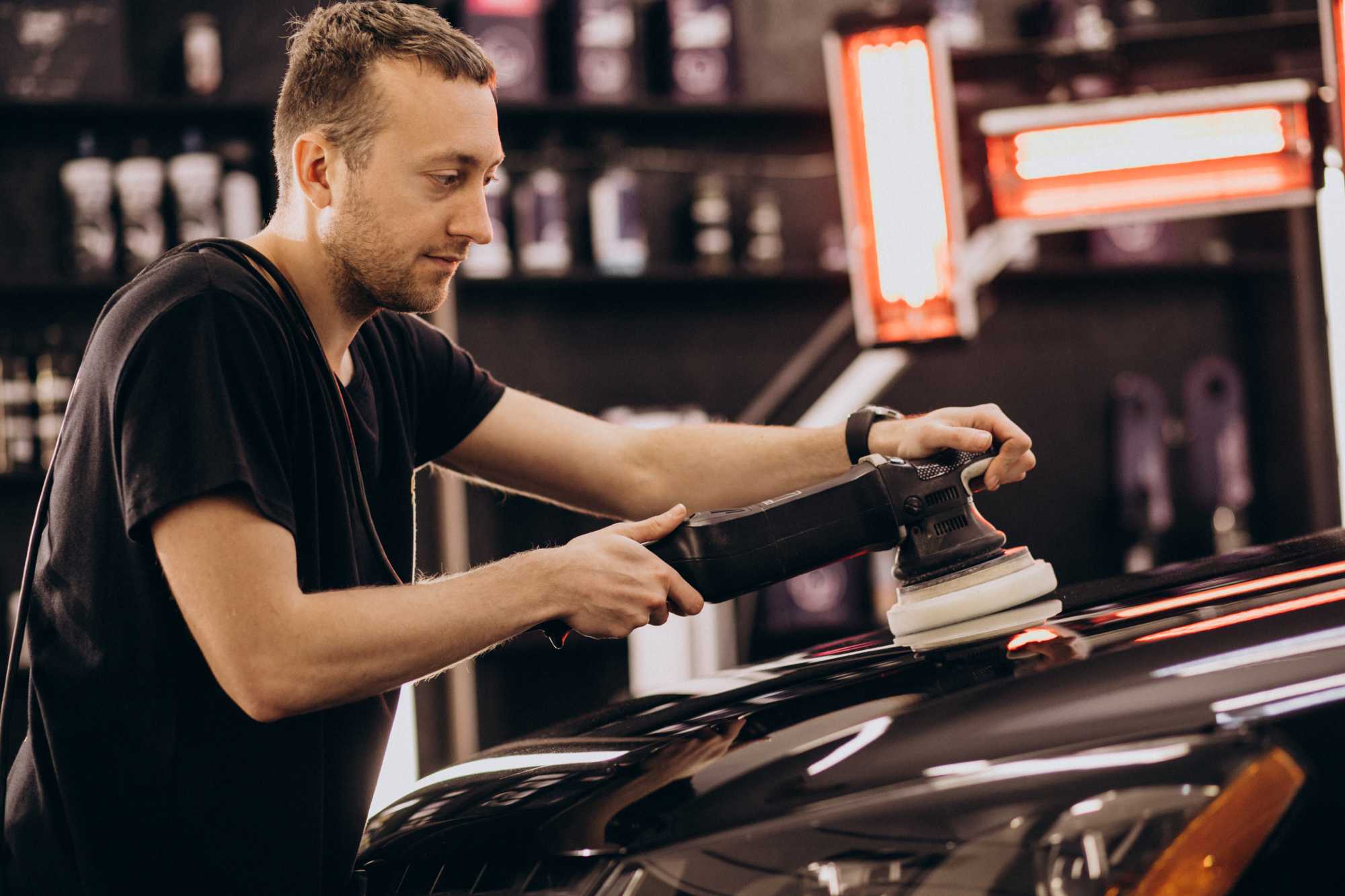- Corrib oil, Neale Rd, Knockfereen, Ballinrobe
- (+353) 87 928 4080
- Everyday 9:00AM to 6:00PM
coolwaves
July 9, 2023
Our customer support is available to entertain your queries.
(+353) 87 928 4080

Maintaining the appearance of your vehicle goes beyond regular car washes and cleaning. To achieve a glossy and showroom-worthy finish, car polishing plays a crucial role. However, with various types of car polishes available in the market, it can be challenging to determine which one is best suited for your vehicle’s needs. In this blog post, we will delve into the different types of car polishes, their unique characteristics, and help you understand which polish is the right choice for your specific requirements.
Car polishing is a process that involves the removal of imperfections, such as scratches, swirl marks, oxidation, and minor paint defects. It is designed to restore the shine and smoothness of your vehicle’s paintwork, leaving it looking fresh and rejuvenated.
Car polishing goes beyond basic cleaning, providing a deep level of correction to the paint surface. By eliminating imperfections, it enhances the overall aesthetic appeal of your vehicle, making it look more attractive and well-maintained.
Abrasive polishes are designed to remove moderate to heavy scratches, swirl marks, and paint defects. They contain abrasive particles that level the paint surface by removing a thin layer of clear coat. These polishes are available in varying levels of aggressiveness, allowing you to choose the right polish based on the severity of imperfections.
Abrasive polishes are ideal for correcting deep scratches and severe swirl marks. However, they require caution and proper technique to avoid over-polishing and excessive removal of clear coat. It is recommended to use abrasive polishes with a machine polisher for better control and efficiency.
All-in-one polishes, also known as AIO polishes, combine polishing and light cleaning properties in a single product. They are less aggressive than abrasive polishes and are suitable for mild imperfections. All-in-one polishes can enhance gloss, remove light swirl marks, and provide some level of paint protection.
These polishes are convenient for regular maintenance and touch-ups. They offer a balance between correction and protection, making them suitable for vehicles with minimal defects or for those who prefer a less aggressive approach.
Finishing polishes are the least aggressive type of polishes. They are designed to refine the paint surface, remove fine swirl marks, and provide a high-gloss finish. Finishing polishes are typically used as a final step after using more aggressive polishes to achieve an impeccable shine.
Finishing polishes are ideal for vehicles with minor imperfections or those that have already undergone correction using abrasive or all-in-one polishes. They enhance the depth and clarity of the paintwork, giving it a stunning, mirror-like finish.
Cleaner polishes are formulated to remove light oxidation, stains, and contaminants from the paint surface. They provide some level of polishing action while offering mild cleaning properties. Cleaner polishes are often used as a maintenance step between more extensive polishing sessions.
These polishes are useful for refreshing the paintwork, removing light surface stains, and maintaining the gloss and cleanliness of the vehicle. They can be used by hand or with a machine polisher, depending on the level of correction needed.
Before selecting a car polish, it is important to assess the condition of your vehicle’s paintwork. Determine the severity of scratches, swirl marks, and oxidation. For deep scratches and significant defects, abrasive polishes may be necessary. Lighter imperfections may be effectively treated with all-in-one or finishing polishes.
Different car polishes may be better suited for specific paint types. Soft paints, such as those commonly found on luxury vehicles, may require less aggressive polishes to prevent excessive removal of the clear coat. Harder paints may benefit from more abrasive polishes for effective defect removal.
Consulting with professional detailers or researching the recommended polishes for your vehicle’s specific paint type can help you make an informed decision.
Some polishes are designed for hand application, while others are more suitable for machine polishing. Consider your preferred method of application and choose a polish that aligns with your capabilities and equipment. Machine polishing tends to offer better results and efficiency for correcting larger areas, while hand application may be suitable for smaller touch-ups.
If you’re uncertain about which polish to use or lack the necessary tools and experience, it’s advisable to consult professional detailers. They can assess your vehicle’s paintwork, determine the appropriate polish and polishing technique, and provide expert guidance.
Choosing the right car polish is essential for achieving the desired results and protecting your vehicle’s paintwork. Understanding the different types of car polishes available, their characteristics, and matching them to your specific needs will help you make an informed decision. Whether you require an abrasive polish for deeper imperfections or a finishing polish for a final touch of gloss, selecting the right car polish will contribute to maintaining your vehicle’s visual appeal and ensuring a showroom-worthy finish.

We’re the best in the town, offering wide range of car wash and valeting services at economical and competitive market prices.
Copyright © Cool Waves
Developed By Ecom Thrust